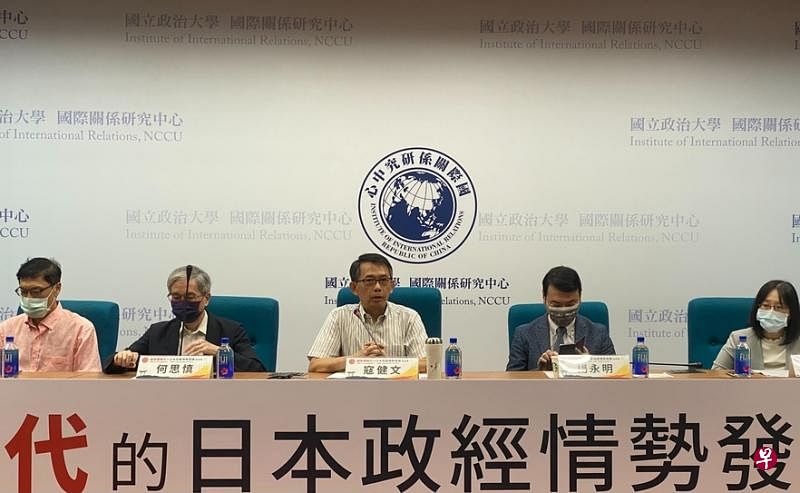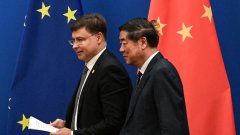
Yang Wenting, assistant professor of research degrees of Japan ’s Japanese University of Political Science, said that the current Japanese Prime Minister Kishida Wenxiong“ focuses on the economy and light arms ”.Based on the strategic interests of the Japanese national and the pressure of the US government, the Kishida government will maintain the Indo -Pacific strategic policy, but will it be active and worth observing whether it will be as positive as the Abe period.
For the next step of Sino -Japanese relations, Taiwanese scholars analyze on Monday (July 18) that although the Kishida government will pursue the Indo -Pacific strategic policy, it will also maintain economic relations with mainland China, let alone give up dialogue with Beijing to talk to Beijing.EssenceThe current difficulty lies in the "timing issue". Perhaps the 50th anniversary of the establishment of diplomatic relations between China and Japan in September is an opportunity. The vice chairman of the mainland Wang Qishan will also have the opportunity to visit Japan. Sino -Japanese relations are expected to progress.
The International Research Center of Taiwan Politburo held a symposium on Monday on Monday. After the death of former Japanese Prime Minister Shinzo Abe was killed, the development of Japanese political and economic development may form a new direction and the connection to the changes in the situation in East Asia.
Yang Wenting, assistant professor of research degree in Japan, proposed at the meeting that the current strategic perspective of Japanese Prime Minister Kishida is different from Abe, in contrast to "focusing on the economy and light arms".Based on the strategic interests of Japan and the pressure of the US government, the Kishida government will maintain the Indo -Pacific strategic policy, but will it be as positive as the Abe period and worth observing.
As for the next direction of Sino -Japanese relations, Yang Wenting analyzes that the current security framework of Japan is difficult to change. Especially China ’s actions in the East China Sea, South China Sea, and Diaoyutai are very concerned about Japan.It may be ignored, and it will not break the Indo -Pacific strategy, so it will maintain the attitude of "political cold".
She believes that the Kishida government is now dealing with the "timing problem". Although she hopes to maintain dialogue with Beijing, considering that China is affected by the epidemic and the economic situation is unstable. At this time, interaction may not be beneficial to Japan;On the one hand, after Abe's death, Kishida's power within the party has not yet stabilized, and he rashly interacts with Beijing, and will also face criticism within the party.
Yang Wenting also mentioned that Beijing is also willing to improve the relationship between Japan when the 50th anniversary of the establishment of diplomatic relations between China and Japan, but also faces the emotional issues of internal ethnicity.Therefore, from the perspective of China and Japan, bilateral relations will move in the direction of "improvement", but I am afraid it will take a while.
The two parties will maintain "cold" to control the risk of controlling the risk
Ishihara Zhonghao, a assistant researcher at the National Guan Guan Center, also mentioned that although Abe invited China official visit to Japan when visiting Beijing in 2018, it was shelved due to factors such as the epidemic.The atmosphere of the official visit, so the two sides should maintain "coldness", focusing on controlling risks, and the relationship will not improve quickly.
Yang Yongming, a deputy secretary -general of the National Security Conference during the Ma Ying -jeou government as the deputy secretary -general of the National Security Conference, believes that the Kishida government will maintain it under the "conservative tap" in the next three years.Policies must also maintain economic relations with the mainland, so it is bound to adopt the "separation of political and economic separation" strategy.
He infer that China and Japan will take action in the second half of the year to improve bilateral relations. During the 50th anniversary of the establishment of diplomatic relations in China in September, the United States is focusing on the November mid -term elections.The pressure will also be smaller. At that time, Wang Qishan, vice chairman of the mainland, may visit Japan, which will be an opportunity to improve Sino -Japanese relations.
The Lord of the Japan and East Asian Research Center of Furen University also mentioned that in order to improve Sino -Japanese relations, Beijing is bound to be hoped to be in Kishida, which may be more patient.
He said that although the possibility of Chinese official visits to Japan is low at this stage, it cannot be ruled out that Kishida's possibility of visiting the United States in the second half of the year and then visiting Beijing.




